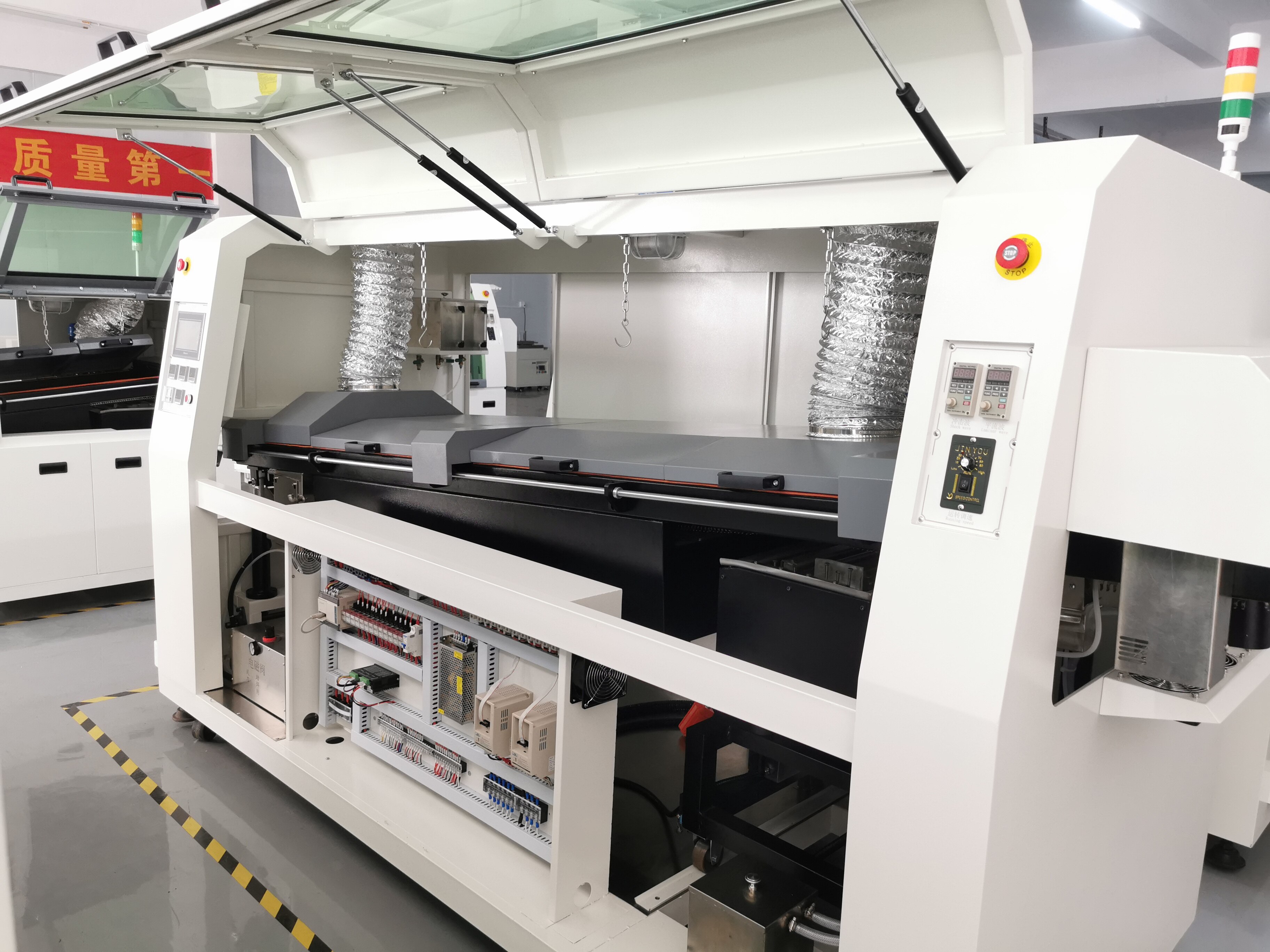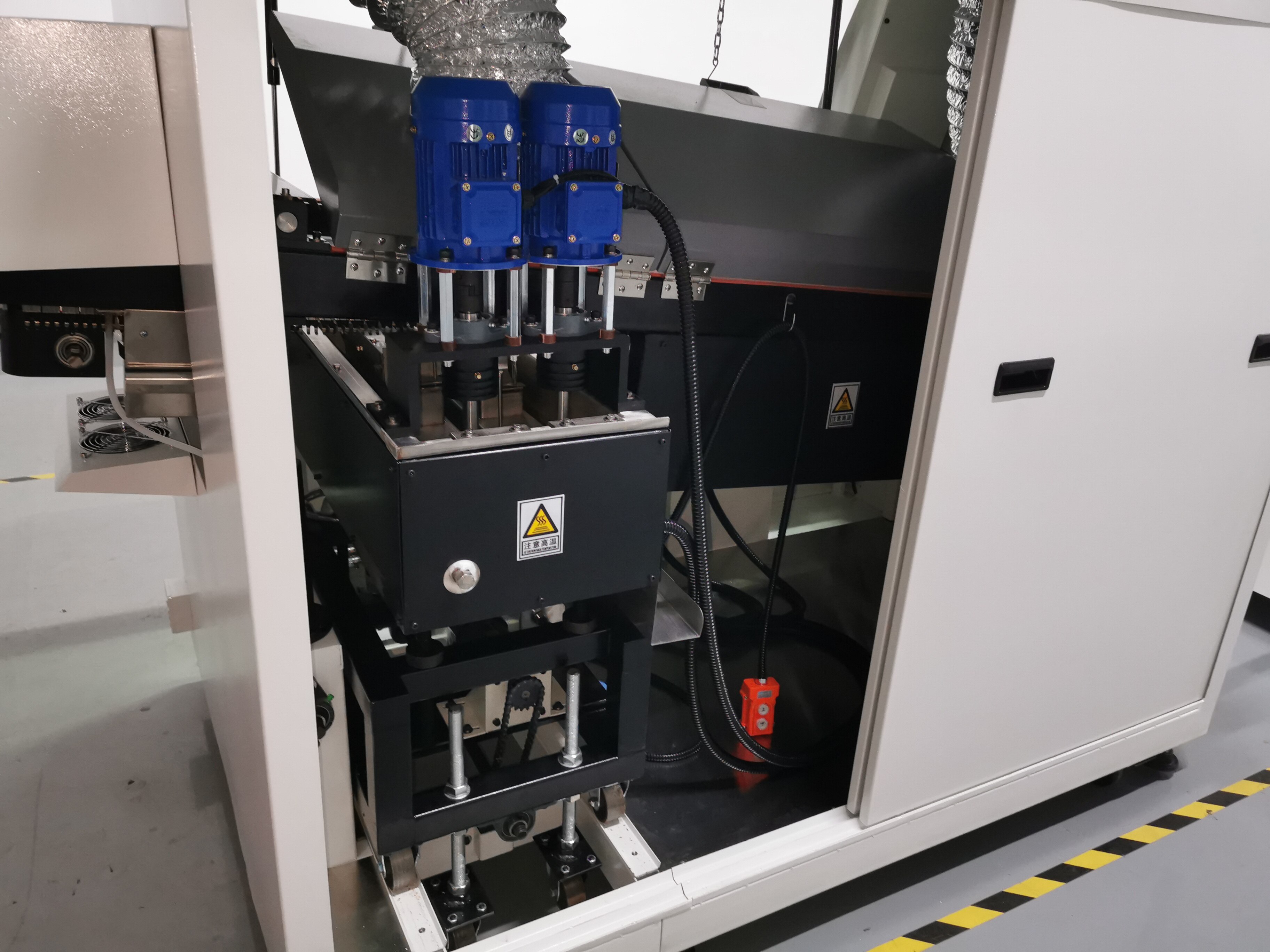Email format error
Email cannot be empty
Email already exists
6-20 characters(letters plus numbers only)
The password is inconsistent
Email format error
Email cannot be empty
Email does not exist
6-20 characters(letters plus numbers only)
The password is inconsistent


Automated Industrial Wave Soldering Machine Price
In the rapidly advancing industrial landscape, automated industrial wave soldering machines have gained significant popularity due to their efficiency, accuracy, and cost-effectiveness. There aims to provide a comprehensive overview of automated industrial wave soldering machines, their advantages, key features, and the factors that influence their price.
I. Understanding Automated Industrial Wave Soldering Machines
A. Definition and Function:
Automated industrial wave soldering machines are advanced soldering systems used in the electronics manufacturing industry. They employ a wave soldering technique to create reliable solder joints on printed circuit boards (PCBs) by passing them over a molten solder wave.
B. Advantages of Automated Wave Soldering:
1. Enhanced Efficiency: These machines can solder multiple PCBs simultaneously, significantly reducing production time.
2. Improved Accuracy: The automated process ensures precise soldering and an even distribution of solder across the PCBs.
3. Cost-effectiveness: Automated soldering eliminates the need for manual labor, reducing production costs and minimizing human errors.
II. Key Features of Automated Industrial Wave Soldering Machines
A. Machine Structure and Control System:
1. Conveyor System: These machines feature a robust conveyor system that transports the PCBs smoothly over the solder wave.
2. Pre-heating Zone: A pre-heating zone ensures that the PCBs reach an optimal temperature before entering the solder wave.
3. Soldering Wave Generator: The solder wave generator creates a stable wave of molten solder for precise and consistent soldering.
4. Fluxing System: The fluxing system applies flux, which cleans the PCBs and promotes the adhesion of solder to the components.
B. Software and Programming:
1. User-friendly Interface: Advanced machines incorporate intuitive interfaces, allowing operators to program soldering parameters with ease.
2. Customization Options: These machines offer flexibility in setting soldering profiles, allowing for different PCB sizes, component placements, and soldering requirements.
3. Monitoring and Controlling: Built-in sensors and monitoring tools enable real-time monitoring of temperature, speed, and flow rate, ensuring accurate soldering.
III. Factors Influencing Automated Industrial Wave Soldering Machine Price
A. Machine Size and Capacity:
1. Throughput Capacity: The number of PCBs a machine can solder per hour.
2. Conveyor Width: Machines with wider conveyors can handle larger PCBs, impacting their price.
B. Manufacturing Quality and Reliability:
1. Material and Component Quality: Machines built with high-quality materials and components tend to have higher prices.
2. Brand Reputation: Machines from reputable manufacturers might carry higher price tags due to their proven performance and reliability.
C. Extra Features and Integration:
1. Additional Features: Machines equipped with advanced technologies such as nitrogen inerting, selective soldering, or dual-wave systems will have higher prices.
2. Integration Capabilities: Machines that can seamlessly integrate with other production line equipment may be priced higher due to their versatility.
D. After-Sales Support and Warranty:
1. Training and Technical Support: Machines that offer comprehensive training programs and responsive technical support might have slightly higher prices.
2. Warranty Period: Machines with longer warranty coverage tend to have higher upfront costs but provide peace of mind to the purchaser.

Automated Industrial Wave Soldering Efficienctly Improve the Productivity and Accuracy
Automated industrial wave soldering machines offer significant advantages in terms of efficiency, accuracy, and cost-effectiveness. The pricing of these machines is influenced by factors such as size, capacity, manufacturing quality, extra features, integration capabilities, and after-sales support. Investing in a high-quality, reliable automated wave soldering machine ensures improved productivity and accuracy in the electronics manufacturing industry.

